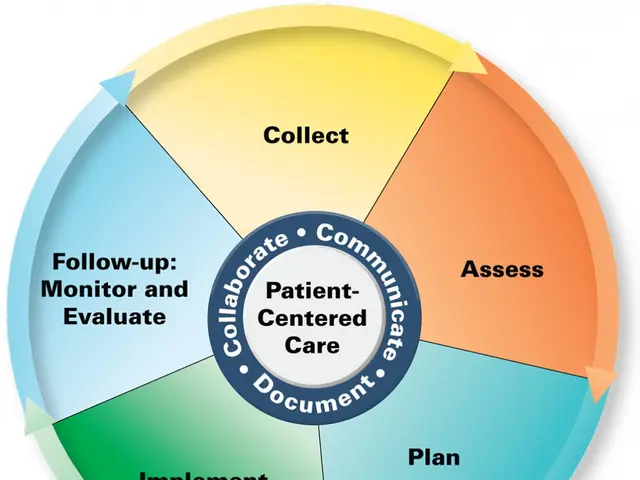Lufthansa's leader issues caution over diminishing connections in Germany
In a recent interview with "Bild am Sonntag", Carsten Spohr, CEO of Lufthansa, expressed serious concerns about the impact of increased state costs in air traffic on German airports and flight connections[1]. He warns that the extreme rise in taxes and fees imposed by the state is causing a decline in airline supply, with more carriers avoiding German airports or canceling important routes. This reduction in capacity threatens Germany’s international connectivity and economic competitiveness.
Specifically, Spohr highlights that airlines are cutting capacity and withdrawing routes from German airports. For instance, Ryanair has reduced its summer capacity by 12% for 2025 and is pulling out of smaller airports while cutting flights heavily in Hamburg and Berlin[1]. Eurowings is discontinuing over 1,000 flights in Hamburg alone.
These cost pressures result in higher ticket prices (economy fares up 60% since 2019) and fewer choices for passengers. Domestic air travel has dropped significantly, operating at about 50% of pre-pandemic levels overall, and some regions outside Frankfurt and Munich have seen declines up to 75%[1].
Spohr’s broader critique connects increased bureaucracy, regulatory burdens, and excessive costs with the deterioration of German aviation’s competitiveness on the world market[1][3]. He mentions the blending quota for E-fuels as an example of a planned state regulation that he believes will decrease the connectivity quality of many important economic regions in international comparison.
However, it is not clear if the cancellation of flight connections is already having a negative impact on the location of Germany, or if other state regulations, besides the blending quota for E-fuels, are planned that could further worsen the situation. It is also not specified if the increased costs for airlines due to the blending quota for E-fuels could affect the offer of flight connections.
The blending quota for E-fuels is a government measure aimed at reducing aircraft CO2 emissions, using synthetic fuels[2]. It is not yet available in sufficient quantities, and its implementation could increase costs for airlines.
[1] Bild am Sonntag [2] German Federal Government [3] Frankfurter Allgemeine Zeitung
- The increased costs in the airline industry, due in part to government measures like the blending quota for E-fuels, could potentially lead to higher ticket prices and a reduction in flight connections, affecting Germany's competitiveness in the aerospace, transportation, and business sectors.
- Spohr, CEO of Lufthansa, has warned that the blending quota for E-fuels, while intended to reduce aircraft CO2 emissions, could increase costs for airlines and potentially reduce flight connections, impacting the connectivity of important economic regions within Germany and abroad.
- The decline in airline supply, as observed in carriers like Ryanair and Eurowings, and the associated cancellation of flight connections, could have a significant impact on Germany's business and economic sectors, particularly the finance industry, given the importance of transportation and international connectivity for trade and commerce.








